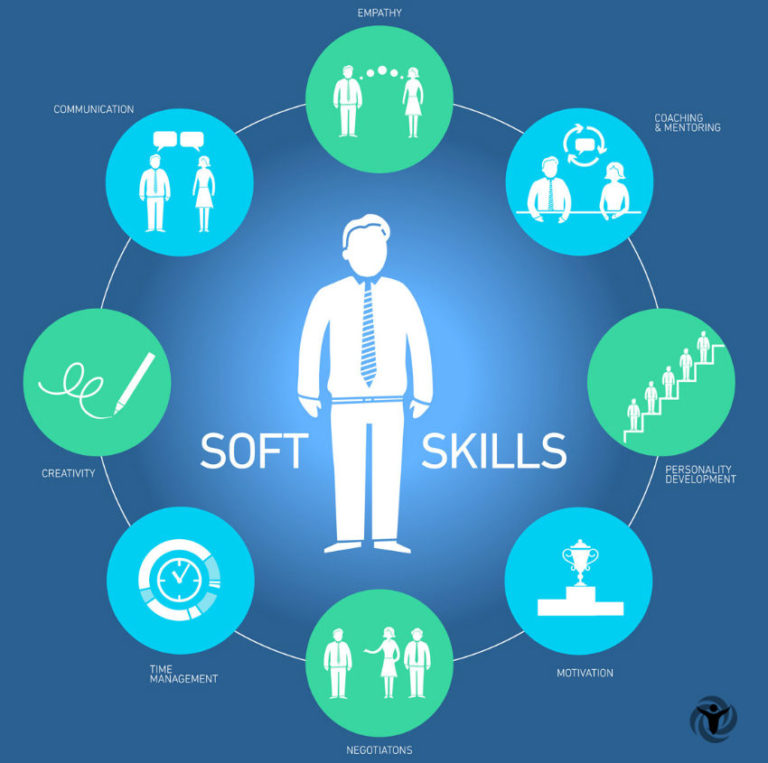Transformation cannot be done without great knowledge. As a matter of fact, the principles of Buddhist wisdom can permanently change everything.
Relying on your own knowledge helps you understand many things about your life, this is true. But, your own human knowledge will fall short. If you’re still young, your wisdom is limited even more so. Learning from your elders is one way of bringing about great transformations.
But there is basic knowledge as well, hidden in the words of Buddhist wisdom. Here are 12 great principles to help you grow:
1. Compassion is key
In order to fully realize your humanity, you must know compassion. In Buddhism, compassion is a respected quality. This compassion is one thing that can transform your life because it’s not about doing the right thing or about helping the world. It’s something much more than that.
The first thing you must understand is that compassion is needed to find inner peace. This inner peace is the key to surviving past traumas or healing from wounds. The other thing you must remember about compassion is that it teaches you to be understanding or have a desire to understand why people do certain things.
Everyone is basically good and it’s imperative to always look for that good in those individuals. Knowing these things and feeling them deep within, will help us avoid the pain of not understanding other’s actions. This, in itself, is a weight lifted off our shoulders.
Most importantly, compassion helps us connect with others. In this, we experience the most powerful joys. There are many reasons to practice compassion, and you should always treat others as you would want them to treat you. At first, this may seem hard, but after a while, it will be extremely rewarding.
2. Making healthy connections
To realize greater awakening, a “sanga” practices peace. The “sanga”, according to Buddhist beliefs, is a group of people, usually consisting of laymen, laywomen, monks, and nuns who meet together to indulge in these practices.
This principle of connection and community is something that people all over the world can benefit from learning. Although people everywhere come together, their goals are usually for monetary gain or for obtaining power.
Rarely do groups of people, especially in the western world, gather together to attain peace, wisdom, and happiness.
The “sanga” can be seen as a symbol in our lives, of the expression of totality. It is simply a perception of life, may be different from our own, but still highly relatable.
Learning to form connections with others is empowering. Whether it’s a few people or a large group, these connections will nourish you and the relationships you form. These connections will greatly transform your life over time.
3. Awaken!
Being completely awake is underrated, yet one of the most powerful states of being. To see life, without the veil of lies, confusion or deception is to live with your eyes wide open.
It’s about mindfulness and being able to pay attention to detail. Every part of your life will change drastically when you learn to be awake, aware and without a filter. It’s just as simple as seeing things for what they truly are, and learning to make decisions according to that discovery.
Now, starting today, try to live fully awake. You will start to overcome great adversity and find the purest joy when you truly open your eyes. You will also learn some of life’s greatest lessons when you learn to live in the present moment.
4. In the deep
Nothing takes you to peace and happiness quite like living a deep life. This is where you are aware of the importance of things like nature and humanity.
Now that you are awake and you see the world, look at it in a deeper way, see its true nature. Why? Because to live in this way is to gradually become aware of the true nature of the world. These feelings and realizations will come in sections.
You will see your interconnectedness and your impermanence, which means the natural changes of death and birth.
Buddhism and many other spiritual practices use this principle as a foundation for beliefs. The ultimate realization has fragments, or sections, that cannot be understood in tradition but must be taken apart with open eyes and become a deep well for those thoughts.
Peace will come as you realize the natural “qualities of the ultimate“. We will be able to enjoy every moment of life, utilizing even the negative moments to promote healing.
5. Change the world, and yourself
Helping others is important, but you cannot do this unless you help yourself first. It’s not selfishness, it’s a Buddhist principle. Now, this doesn’t mean gaining riches to help others, its more than material aspects.
We are all connected, as you know, so when you do well for yourself, physically, spiritually and mentally, you can be a positive example to the rest of the world. One false belief will try to convince you that it’s “you” or it’s “them” which must fall short.
This is a common deception. The truth is, by making things about you, you are also including them when you understand these principles.
So, take care of yourself and then help others as well. It’s a simple principle that will change you and others, this will cause a wave of likewise actions and decision, with you setting the example.
6. Accept death
The Western world hates to talk about death. To them, it is creepy and avoided at all turns. Sometimes, we even pretend that death is not even an option.
The truth is, we can find great peace by facing our impermanence. Knowing and understanding death can help us lead better lives in our knowledge of interconnectedness. Here’s a strange tidbit: In Buddhism, “meditating on a corpse” was normal practice for students in many sects.
These students actually think about a corpse and imagine each process of decomposition, all the way until the end of the transformation.
Although this seems a little extreme, it helps the students to understand their own mortality and find peace in the truth of death. Ignoring the fact that you certainly will die is unhealthy.
Now, you don’t have to meditate on a corpse like the Buddhist students, but opening yourself up about death in some fashion will prove beneficial to your mental health. Allowing yourself to accept death will bring greater joy for everyday life.
7. The importance of your food
So many people seem to mindlessly eat, not really appreciating where their food comes from or it’s importance. In Buddhist meditative practice, being aware of your nourishment plays a great role in mindfulness and contemplation.
You will learn to transform your relationship with food and see it’s nature as being precious.
We must see the food before us, on the plate, as a great thing, greater because we learn to see beyond something being given to us or prepared for our nourishment and pleasure. We have to take the time to understand all the factors that allowed us to partake of the food.
Only then will we have a healthier relationship with food and offer gratitude and respect for the balance of our lives.
8. Giving is natural
When you think of gifts, you might reflect on Christmas or Birthdays, but those gifts aren’t the important ones. Some of the most important gifts are given on ordinary days when we just feel like being extra kind to someone.
There is a deep understanding of Buddhist wisdom and beliefs about giving. The nature of giving is the constant cycle of giving and receiving. Looking at giving in this way helps us find peace within and understand more of the world around us.
We have natural gifts, such as love, our presence, and compassion.
9. Keep the ego in check
The ego is the biggest obstacle in the way of us fulfilling our purpose. When you are getting in touch with your spirituality, the ego will try to divert your attention to other petty things. We must learn to ignore this negative voice.
The objective of the ego is to take you away from your spiritual ground. It likes to convince you that you are a separate being. This sort of attitude is more than just negative, it can cause issues with you and others who know you.
It takes time to put the ego in its place, so no worries. The ego has been with us and part of us for many years and will not be an easy parasite to pull away. If you are able to untangle your ego from your mind, you will realize your life at its best.
10. 3 poisons
We are imperfect humans, and with that imperfection, we have vices that keep us bound. These vices are opposites of love, compassion, and joy. However, there is 3 most powerful among these vices, and these are the main culprits that hinder your growth.
- Greed
- Hatred
- Delusion
These 3 poisons are responsible for all your pain and suffering. We can sometimes recognize them as one collective being. Not to worry, it’s normal to become sick with these poisons at some time in your life.
It’s just how you deal with them that matters. When you do see them surface, don’t panic, just see them for what they are and make plans to eliminate them from your life.
11. Conscious living
We, as human beings, should pay close attention to the way we live and operate. This means we shouldn’t get involved in selling harmful things such as guns and drugs. But, it means much more than that as well.
When you’re making a living, you should do so for two principles: You should conduct the type of business that brings you peace and you should also conduct business that brings others’ peace. This is what matters.
Thich Nhat Hanh mentioned,
“The butcher isn’t a butcher only because he decided to be, but because there is a demand from people for meat to be neatly packaged and made available for them to be purchased from supermarkets.”
If you follow in Buddhist wisdom and come to a realization about your work, you can begin to alter your livelihood. Only you can make the decision to make these changes. Remember, seek peace and happiness by all means.
12. Without attachments
Buddhist wisdom states that being unattached does not mean abandoning family and friends, it just means having these things without attaching yourself to them. This also applies to work and building a home, all these things are material and can change over time.
This helps you accept and understand impermanence.
Making Your Life Better with Buddhist Wisdom
A Zen student in Japan may de-robe and return to the modern world with a new viewpoint on life. For a while, he may give up attachments in order to gain a better view of his life. Then, when he returns to the masses, his outlook will be greatly changed.
He will have a new outlook on how to approach emotional issues. And this doesn’t mean that you should not feel emotions deeply. Being mindful while allowing those emotions to seep in is the objective for the best life results.
When emotions have been allowed to make us feel, we can then start the healing process, without any obstacles blocking our path. Buddhist wisdom has taught us these 12 principles so that we could shake off the darkness and find our path to true Enlightenment.
References:





just don’t have a picture of headphones on the buddha